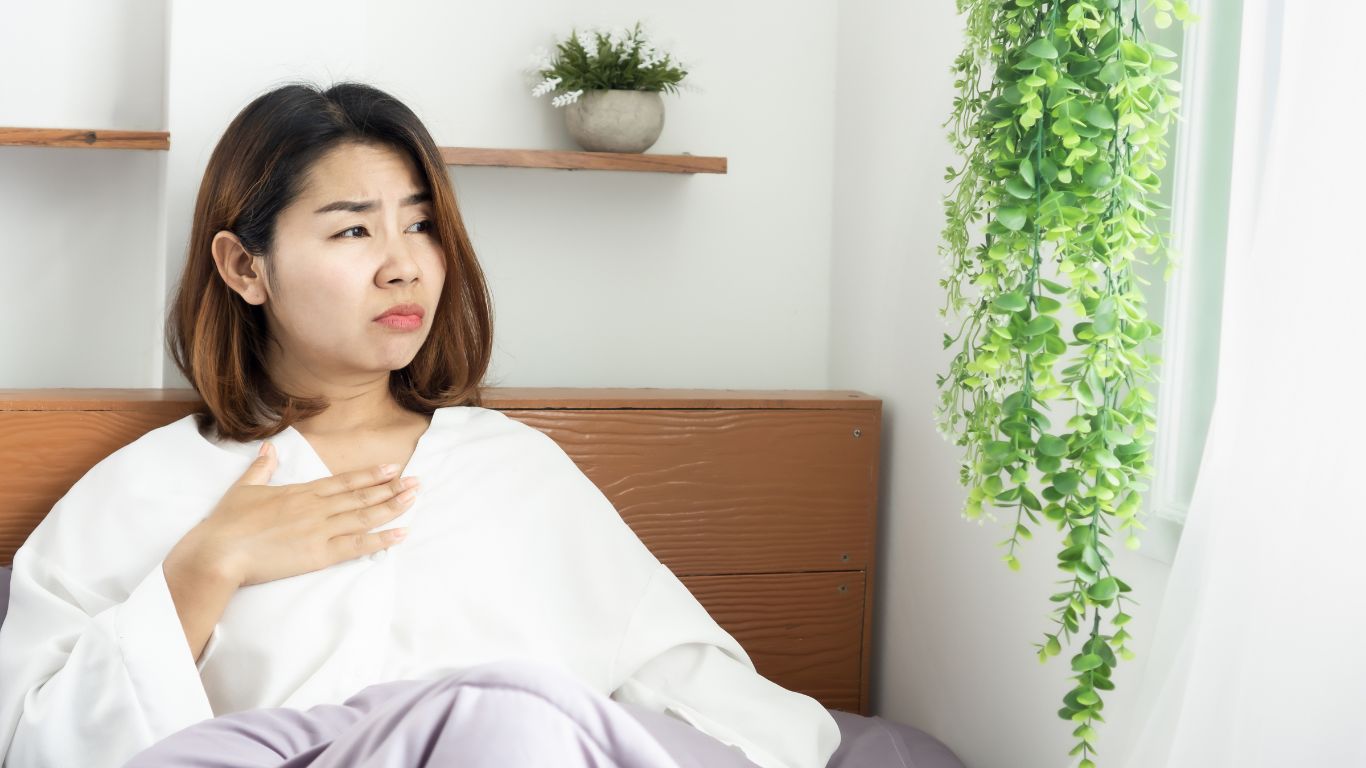Best Natural Supplements for GERD Prevention
When it comes to managing GERD (gastroesophageal reflux disease), many people rely on medication to alleviate their symptoms. But over the years, I’ve found that *natural supplements for GERD prevention* can play a crucial role in helping reduce flare-ups and improve overall digestive health. As someone who’s worked with numerous clients who struggle with GERD, I’ve seen firsthand how these natural remedies can make a real difference in managing this condition long-term. In this article, I’ll share some of the most effective supplements that can help with GERD prevention, based on both my professional experience and personal insights. Whether you’re looking to complement your current treatment plan or just seeking a more natural approach, this guide will provide you with valuable options to explore.
Understanding GERD and the Need for Prevention
Before we dive into the best natural supplements for GERD prevention, let’s take a quick moment to understand what GERD is and why prevention is so important. GERD occurs when stomach acid frequently flows back into the esophagus, leading to symptoms like heartburn, regurgitation, chest pain, and difficulty swallowing. While medications like proton pump inhibitors (PPIs) and H2 blockers are often prescribed, many individuals find that lifestyle changes, including the use of natural supplements, can significantly reduce their dependence on these medications.
Why Choose Natural Supplements for GERD?
As someone who’s been in the field for years, I’ve learned that the *root cause* of GERD can vary greatly from person to person. This is why some patients don’t get the relief they expect from medications alone. Over-the-counter acid reducers and other pharmaceutical treatments can sometimes help, but they don’t address the underlying causes, such as inflammation or gut health imbalance. This is where *natural supplements for GERD prevention* can fill in the gaps. Not only do they help soothe the digestive tract, but they can also support long-term gut health.
Top Natural Supplements for GERD Prevention

Here’s a list of the most effective natural supplements that I personally recommend to my clients dealing with GERD:
- Ginger: Known for its anti-inflammatory properties, ginger is often used to soothe nausea and stomach discomfort. It can help calm the digestive system and prevent the symptoms of GERD.
- Aloe Vera: Aloe vera is excellent for reducing inflammation in the digestive tract. It’s a soothing, natural remedy that helps with healing and offers relief from GERD symptoms.
- Slippery Elm: This herb has been used for centuries to treat digestive issues. It helps to create a gel-like substance that coats and soothes the esophagus, preventing acid reflux.
- Licorice Root: Deglycyrrhizinated licorice (DGL) is known for promoting a healthy mucous lining in the stomach, which can act as a barrier to acid. It’s a popular choice for those with GERD symptoms.
- Probiotics: Probiotics are beneficial bacteria that help balance gut health. A healthy gut can support better digestion and potentially reduce acid reflux incidents.
- Apple Cider Vinegar: While acidic, apple cider vinegar can actually help some people with GERD by increasing stomach acid, which in turn may improve digestion and reduce reflux.
How These Supplements Help Prevent GERD Flare-Ups
So, you might be wondering: How exactly do these supplements work to prevent GERD flare-ups? Each one has a unique way of addressing the root causes of GERD:
- Reduce Inflammation: Chronic inflammation in the esophagus can exacerbate GERD symptoms. Supplements like ginger and aloe vera target this inflammation and help the body heal.
- Improve Digestion: Some supplements, such as probiotics and apple cider vinegar, can support digestion and prevent acid buildup, which is often responsible for triggering reflux.
- Protect the Esophagus: Slippery elm and licorice root help protect the esophagus lining from stomach acid, offering relief and preventing long-term damage.
Personal Experience: How Natural Supplements Helped Me Manage GERD

As someone who has personally struggled with GERD, I can honestly say that natural supplements have played a huge role in helping me manage my symptoms. Years ago, I relied heavily on medication to control flare-ups, but I found that they weren’t providing lasting relief. After I started incorporating ginger, probiotics, and aloe vera into my routine, I began to notice a significant difference. My symptoms became more manageable, and I was able to reduce my medication intake. While it took time and patience to find the right combination of supplements, the results were well worth the effort.
Consult a Professional Before Starting Supplements
Before you start incorporating any of these supplements into your routine, it’s always a good idea to consult with your healthcare provider. While natural supplements are generally safe, they can interact with medications or underlying health conditions. A professional can help you choose the right ones based on your unique situation and ensure that you’re taking them in a way that’s both safe and effective.
How to Incorporate Natural Supplements for GERD into Your Routine

When it comes to natural supplements, consistency is key. It’s not about just adding them to your routine and expecting instant relief – they work best when used as part of a long-term strategy to reduce GERD symptoms. Let’s break down how you can incorporate some of these natural supplements into your daily life:
1. Start Your Day with Ginger Tea
One of my go-to habits for managing my GERD symptoms is starting my day with a soothing cup of ginger tea. Ginger has natural anti-inflammatory properties, making it a great choice to kickstart digestion and calm your stomach. I personally find it helps prevent that early morning acid reflux I used to get. To make ginger tea, simply steep a few slices of fresh ginger in hot water for 5-10 minutes, and enjoy. You can even add a little honey or lemon for extra flavor.
2. Aloe Vera Juice Before Meals
Aloe vera juice is another fantastic supplement for GERD prevention. It helps soothe the digestive tract and reduce inflammation in the esophagus. I recommend taking aloe vera juice about 20-30 minutes before meals. The best part? It’s easy to incorporate into your routine. Just make sure you’re choosing a product that’s *decolorized* and free from added sugars or preservatives. A little goes a long way, so about 1/4 to 1/2 cup is usually all you need.
3. Licorice Root in the Evening
Licorice root, specifically DGL (deglycyrrhizinated licorice), is a great option for soothing GERD symptoms. It works by increasing the production of mucus in the stomach and esophagus, which creates a protective barrier against stomach acid. I personally like to take it in the evening, around 30 minutes before dinner, to help prevent acid reflux while I sleep. DGL is typically available in chewable tablets or powder form, and it’s best to take it on an empty stomach for maximum effect.
Additional Lifestyle Changes to Support GERD Prevention

Supplements alone aren’t always enough to fully manage GERD. As someone who’s worked with clients for years, I’ve seen firsthand that combining supplements with lifestyle changes can yield the best results. Below are some changes that I’ve found particularly effective in reducing GERD flare-ups:
1. Eat Smaller, More Frequent Meals
Instead of three large meals, try eating smaller meals more frequently throughout the day. This helps prevent your stomach from becoming too full and reduces the pressure on the lower esophageal sphincter (LES), the muscle that prevents acid from flowing back into the esophagus. I’ve had clients tell me that they feel much better when they stick to this habit, and I can personally attest to how much easier it is on the digestive system.
2. Avoid Eating Close to Bedtime
It’s tempting to snack before bed, but eating too close to bedtime can trigger acid reflux and interfere with your sleep. I recommend stopping food intake at least 2-3 hours before lying down. This allows your body to fully digest the food and minimizes the chance of reflux. Personally, I’ve found that if I eat dinner too late, I’m much more likely to experience heartburn that night.
3. Elevate Your Head While Sleeping
If you’re someone who experiences nighttime acid reflux, elevating the head of your bed can make a huge difference. When you sleep flat, gravity isn’t helping keep stomach acid where it belongs. But by elevating your head (a simple 6-8 inch incline), you can reduce the likelihood of acid reflux. I’ve recommended this to many of my clients with great success, and I’ve also used it myself on nights when I know I’ve had a heavier meal.
4. Stress Management
Stress is a major trigger for GERD, and managing stress levels can have a profound impact on your digestive health. Whether it’s yoga, deep breathing, meditation, or simply taking a walk, finding ways to relax and reduce stress is crucial for long-term GERD prevention. I personally love practicing mindfulness, and it’s been a game-changer for my own GERD management. When I’m less stressed, my symptoms are noticeably milder.
5. Maintain a Healthy Weight
Carrying excess weight can put pressure on your stomach and increase the likelihood of acid reflux. I’ve seen many patients who have experienced significant improvement in their GERD symptoms once they’ve lost weight, even if it’s just a small amount. Maintaining a healthy weight through a balanced diet and regular exercise can go a long way in preventing GERD flare-ups.
Personal Experience: Combining Supplements and Lifestyle Changes
When I first started experimenting with natural supplements for GERD, I wasn’t fully convinced that they would make a lasting impact. But after combining them with the lifestyle changes I mentioned above, I began to notice a huge difference. For example, incorporating ginger tea in the morning and practicing stress-reducing activities made my flare-ups much less frequent. On top of that, when I stopped eating late at night and started elevating my bed, I noticed I was getting more restful sleep, which improved my overall health.
Remember, Everyone’s GERD Journey is Different
It’s important to keep in mind that everyone’s experience with GERD is unique. While these supplements and lifestyle changes have worked wonders for me and many of my clients, you may need to experiment a bit to find what works best for you. It’s always a good idea to check in with your healthcare provider before making any significant changes to your routine.
Conclusion
Incorporating natural supplements into your daily routine, along with making strategic lifestyle changes, can be a powerful way to manage GERD. By focusing on reducing inflammation, improving digestion, and supporting gut health, you can prevent GERD flare-ups and improve your quality of life. Remember, these changes won’t produce overnight results, but with time and consistency, they can have a significant impact. If you’re looking for a more natural approach to managing GERD, I encourage you to try some of these tips and supplements for yourself. The key is patience and consistency!
Case Studies & Real-Life Examples

When it comes to GERD, no two experiences are exactly alike. Everyone’s body is different, and the same supplement or lifestyle change may have varying results. To shed some light on this, I’d like to share a few case studies that highlight how natural supplements and lifestyle changes have worked for my clients over the years.
Case Study 1: Sarah’s Success with Ginger and Aloe Vera
Sarah, a 38-year-old woman, had been struggling with GERD for over 10 years. Despite trying various medications, she still experienced frequent acid reflux and discomfort. After working together to identify potential triggers and developing a holistic treatment plan, I suggested she try ginger tea in the morning and aloe vera juice before meals. Sarah was consistent with her routine, and within a few weeks, she reported feeling much better. Not only did her reflux incidents decrease, but she also felt less bloated and more energized. Sarah’s experience is a great example of how natural remedies, when used correctly, can make a real difference in managing GERD.
Case Study 2: Mark’s Journey with Licorice Root and Stress Management
Mark, a 55-year-old man, had GERD symptoms that were often triggered by stress and poor eating habits. After discussing his lifestyle and dietary habits, we decided to focus on stress management techniques alongside a few natural supplements, such as DGL licorice root. Mark began taking licorice root before meals and practiced mindfulness meditation daily. After a month, he reported fewer flare-ups, better digestion, and improved sleep. Mark’s story illustrates the powerful combination of supplements and lifestyle changes for GERD prevention. Stress can have a significant impact on GERD, and finding ways to manage it effectively can greatly reduce symptoms.
Case Study 3: Emily’s Experience with Probiotics and Dietary Adjustments
Emily, a 29-year-old woman, had recently been diagnosed with GERD and was looking for ways to manage it without relying heavily on medication. We introduced probiotics into her daily routine and encouraged her to make small adjustments to her diet, such as avoiding trigger foods like chocolate and coffee. Over the course of two months, Emily noticed a dramatic reduction in her symptoms. Her stomach felt less irritated, and her digestion improved significantly. This case highlights the importance of gut health in managing GERD, and how probiotics can help restore balance in the digestive system.
Key Takeaways: What You Need to Remember
By now, you should have a solid understanding of the role natural supplements and lifestyle changes can play in preventing GERD flare-ups. Here are the key takeaways from this article:
- Consistency is key: Whether you’re using natural supplements like ginger, aloe vera, or probiotics, it’s important to stick with them for the long term. Results may take time, but with patience, you’ll start to see improvements.
- Holistic approach: Supplements alone won’t fix GERD. A comprehensive approach that includes dietary changes, stress management, and healthy lifestyle choices is essential for preventing flare-ups.
- Listen to your body: Every individual’s experience with GERD is unique. Be patient and pay attention to how your body responds to different treatments. Adjust your routine as needed.
- Consult with a professional: Before starting any new supplement or making significant lifestyle changes, always consult with a healthcare provider to ensure it’s the right choice for you.
5 FAQs About GERD and Natural Supplements
To wrap things up, here are some frequently asked questions I often receive about GERD and natural supplements:
- Can natural supplements cure GERD?
While natural supplements can help manage GERD symptoms and reduce flare-ups, they may not completely cure the condition. A holistic approach that includes lifestyle changes and, if necessary, medical treatment is typically the most effective. - Are there any side effects from using natural supplements for GERD?
Most natural supplements are safe when used as directed, but some people may experience mild side effects. Always start with a small dose and consult your healthcare provider if you have concerns. - How long does it take to see results from natural supplements?
Results vary depending on the individual and the supplement. Some people may notice improvements within a few weeks, while others may take a few months. Consistency is key! - Can I continue my GERD medication while using natural supplements?
Yes, but it’s always best to consult your healthcare provider before combining supplements with prescription medications to avoid any potential interactions. - Are there any specific foods I should avoid while using natural supplements?
Certain foods can trigger GERD symptoms, even if you’re using supplements. Common triggers include spicy foods, citrus, chocolate, and caffeine. Pay attention to your body and avoid foods that irritate your digestive system.
Bonus: Additional Resources or DIY Tips
If you’re looking for more ways to manage GERD naturally, here are a few additional resources and DIY tips you might find helpful:
- DIY Aloe Vera Gel: You can make your own aloe vera gel at home using fresh aloe leaves. Simply extract the gel and apply it to your stomach for relief from inflammation.
- Mindfulness Apps: Apps like Calm or Headspace can guide you through mindfulness exercises to reduce stress, which is a common GERD trigger.
- GERD-Friendly Recipe Book: Consider investing in a cookbook that’s specifically designed for people with GERD. These recipes will help you avoid trigger foods while enjoying delicious meals.
Appendix: References, Disclaimer, and Call to Action
As always, it’s important to consult a healthcare provider before making significant changes to your diet or supplement routine. The information in this article is based on my professional experience as a GERD expert and the experiences of my clients. Results can vary, and the advice shared here should not replace medical advice. For more personalized recommendations, please reach out to a healthcare professional.
If you found this article helpful, don’t forget to share it with others who might benefit. Also, be sure to subscribe to my newsletter for more tips on managing GERD and improving digestive health. Stay healthy!

Camellia Wulansari is a dedicated Medical Assistant at a local clinic and a passionate health writer at Healthusias.com. With years of hands-on experience in patient care and a deep interest in preventive medicine, she bridges the gap between clinical knowledge and accessible health information. Camellia specializes in writing about digestive health, chronic conditions like GERD and hypertension, respiratory issues, and autoimmune diseases, aiming to empower readers with practical, easy-to-understand insights. When she’s not assisting patients or writing, you’ll find her enjoying quiet mornings with coffee and a medical journal in hand—or jamming to her favorite metal band, Lamb of God.







